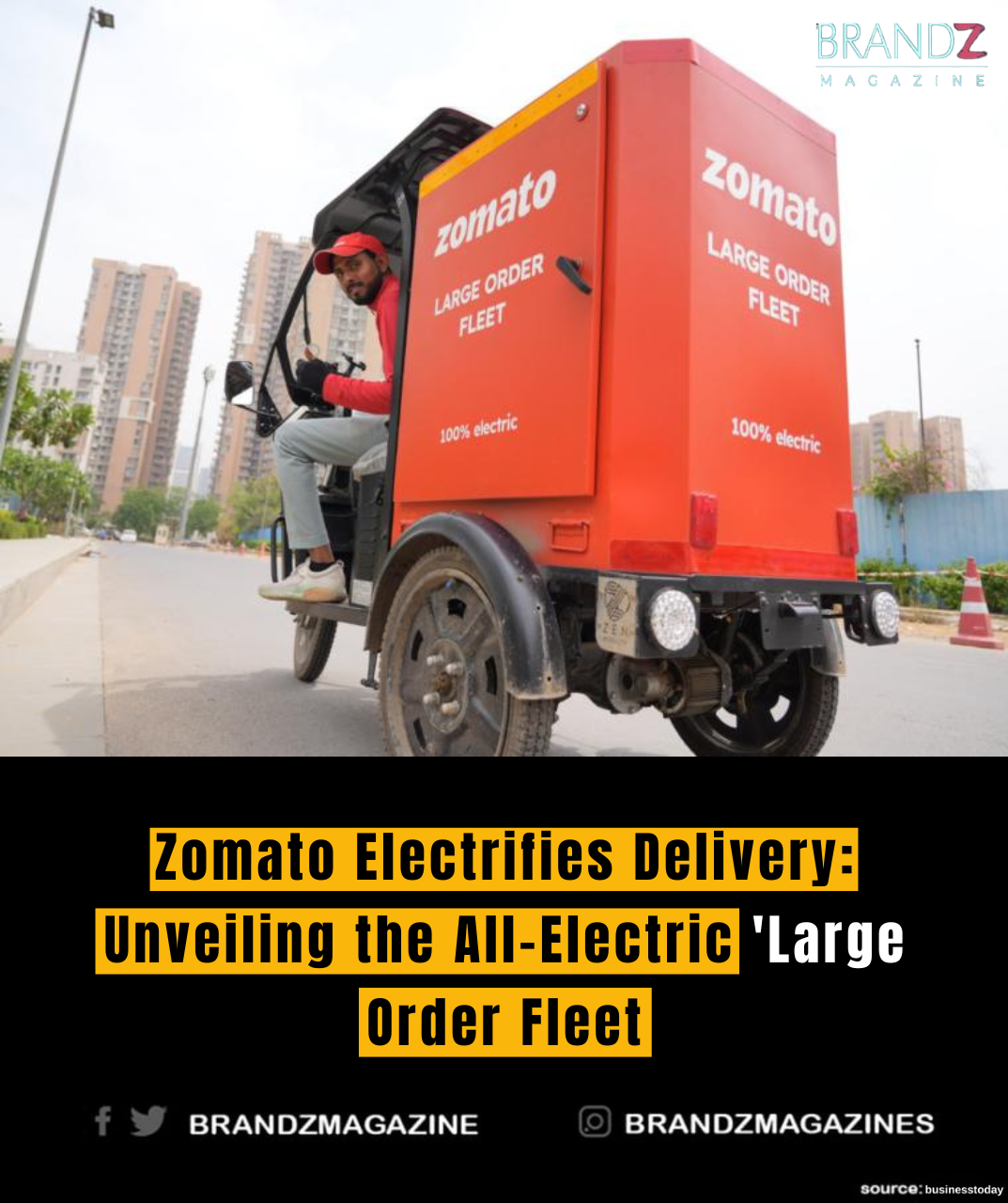
Zomato, a leading name in the food delivery industry, has once again demonstrated its commitment to innovation and sustainability by unveiling its all-electric ‘Large Order Fleet.’ This move represents a significant step towards reducing carbon emissions and promoting eco-friendly practices in the food delivery ecosystem.
The ‘Large Order Fleet’ initiative is part of Zomato’s ongoing experiments and efforts to incorporate green technologies and practices into its operations. By transitioning to all-electric vehicles for large orders, Zomato aims to minimize its environmental impact while catering to the increasing demand for food delivery services.
Electric vehicles (EVs) have gained traction globally as a sustainable alternative to traditional gasoline-powered vehicles. They produce zero tailpipe emissions, significantly reducing air pollution and greenhouse gas emissions. Zomato’s decision to introduce EVs into its fleet aligns with broader sustainability goals and contributes to building a greener and more sustainable delivery infrastructure.
The transition to an all-electric ‘Large Order Fleet’ reflects Zomato’s proactive approach towards embracing innovation and leveraging technology for positive environmental outcomes. The company recognizes the importance of corporate responsibility and is taking tangible steps to reduce its carbon footprint and promote sustainable business practices.
Moreover, the adoption of electric vehicles by Zomato is in line with government initiatives and global trends towards sustainable mobility solutions. Governments around the world are incentivizing the adoption of EVs through subsidies, tax benefits, and infrastructure development, encouraging businesses and consumers to embrace cleaner transportation options.
The benefits of transitioning to electric vehicles extend beyond environmental impact reduction. EVs offer operational advantages such as lower maintenance costs, quieter operation, and improved energy efficiency compared to traditional vehicles. These factors contribute to a more cost-effective and sustainable delivery ecosystem for Zomato and its partners.
Zomato’s ‘Large Order Fleet’ initiative also reflects changing consumer preferences and expectations regarding sustainability and corporate responsibility. Consumers are increasingly inclined towards supporting businesses that prioritize environmental conservation and adopt eco-friendly practices. By incorporating electric vehicles into its fleet, Zomato not only meets regulatory requirements but also enhances its brand image as a socially responsible organization.
In addition to the environmental benefits, Zomato’s all-electric fleet contributes to the development of a cleaner and healthier urban environment. Reduced air pollution from EVs translates into improved air quality, which has a positive impact on public health and well-being, especially in densely populated urban areas.
The successful implementation of the ‘Large Order Fleet’ initiative by Zomato sets a precedent for other players in the food delivery and logistics sectors to embrace sustainable practices and adopt electric vehicles. It underscores the potential for technology-driven solutions to address environmental challenges and drive positive change in the way goods and services are delivered.
In conclusion, Zomato’s introduction of the all-electric ‘Large Order Fleet’ reflects a forward-thinking approach towards sustainability, innovation, and corporate responsibility. By leveraging electric vehicles, Zomato not only reduces its carbon footprint but also sets a benchmark for sustainable practices in the food delivery industry. This initiative aligns with broader efforts to promote clean energy and environmental conservation, contributing to a greener and more sustainable future.

